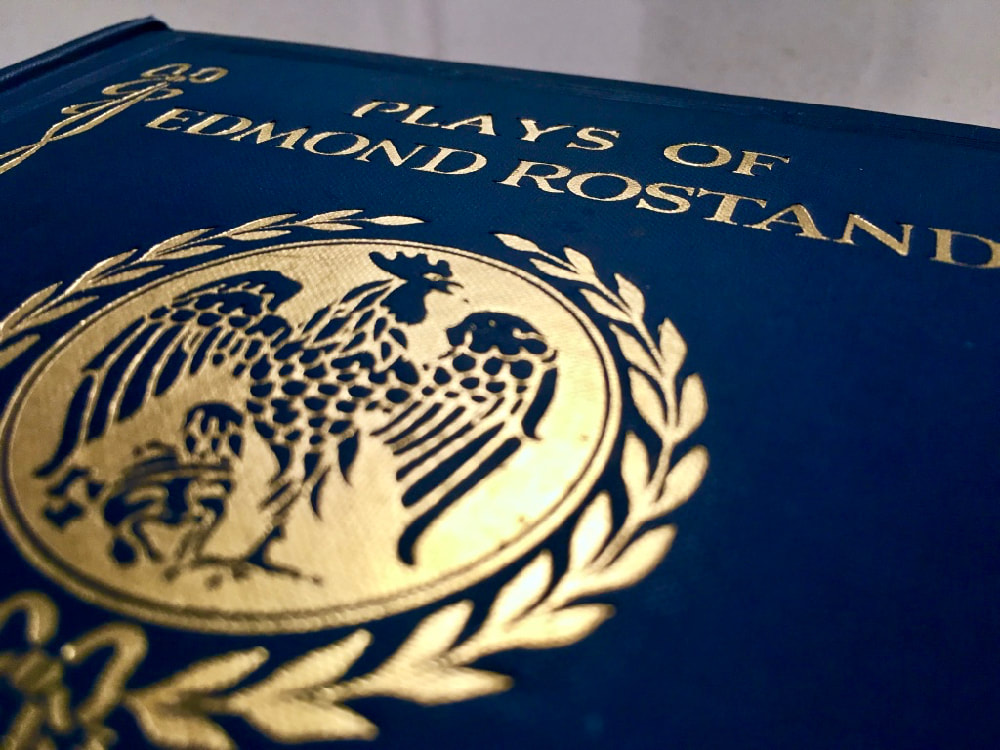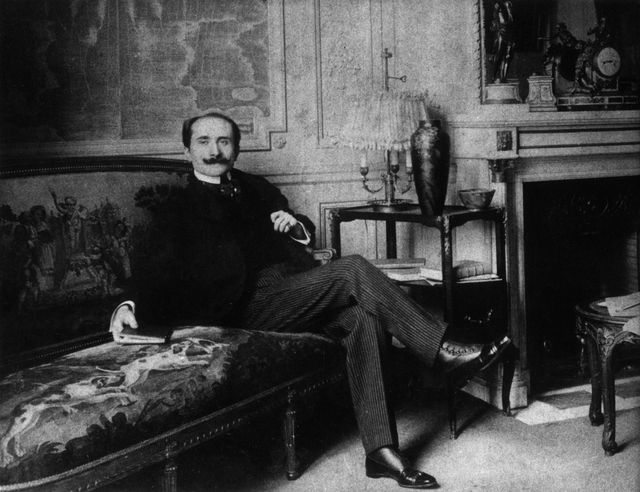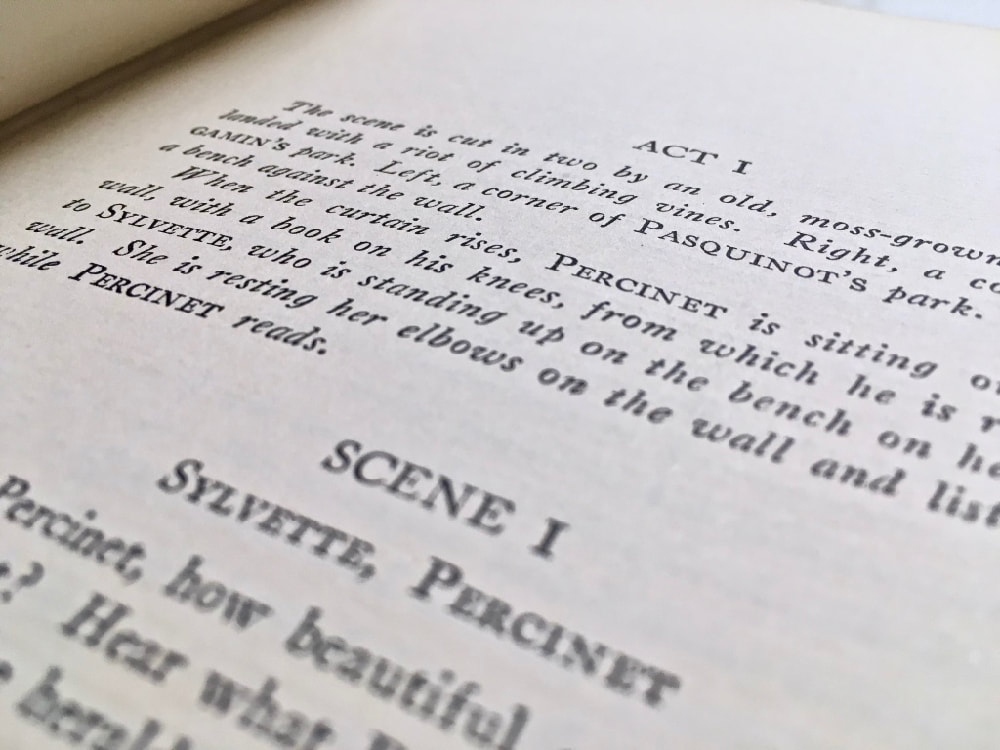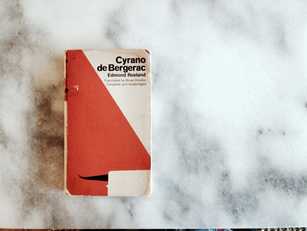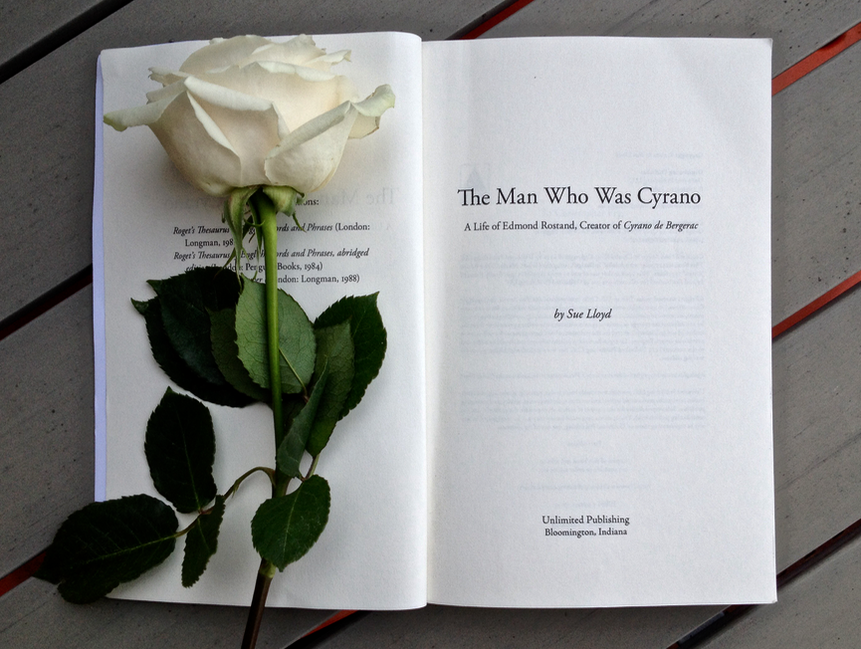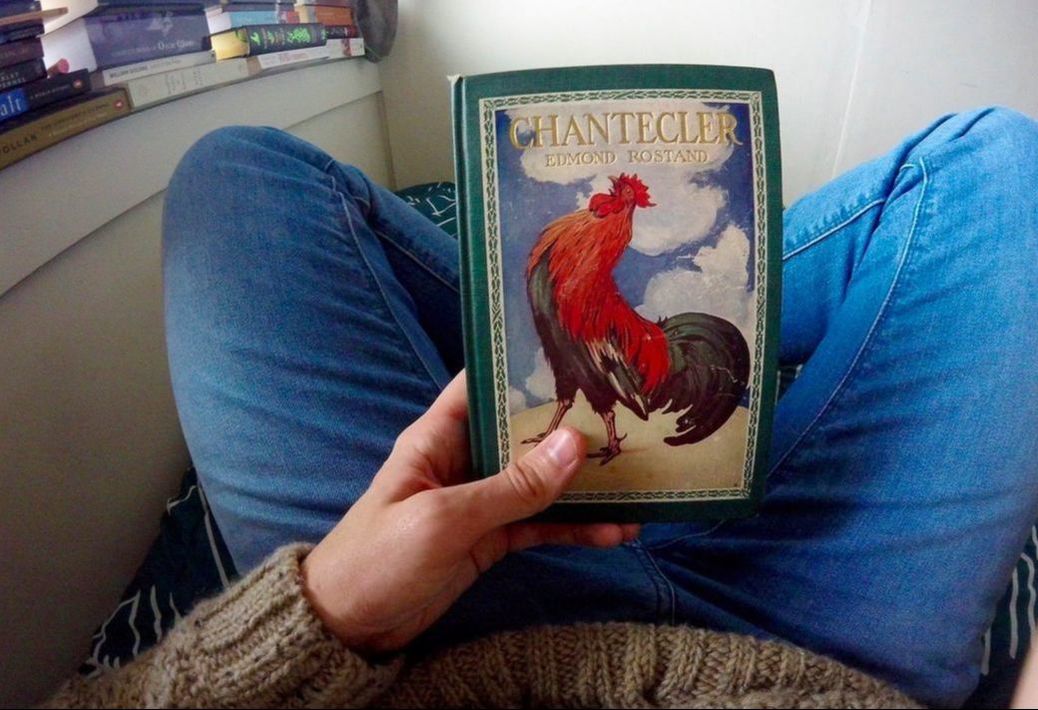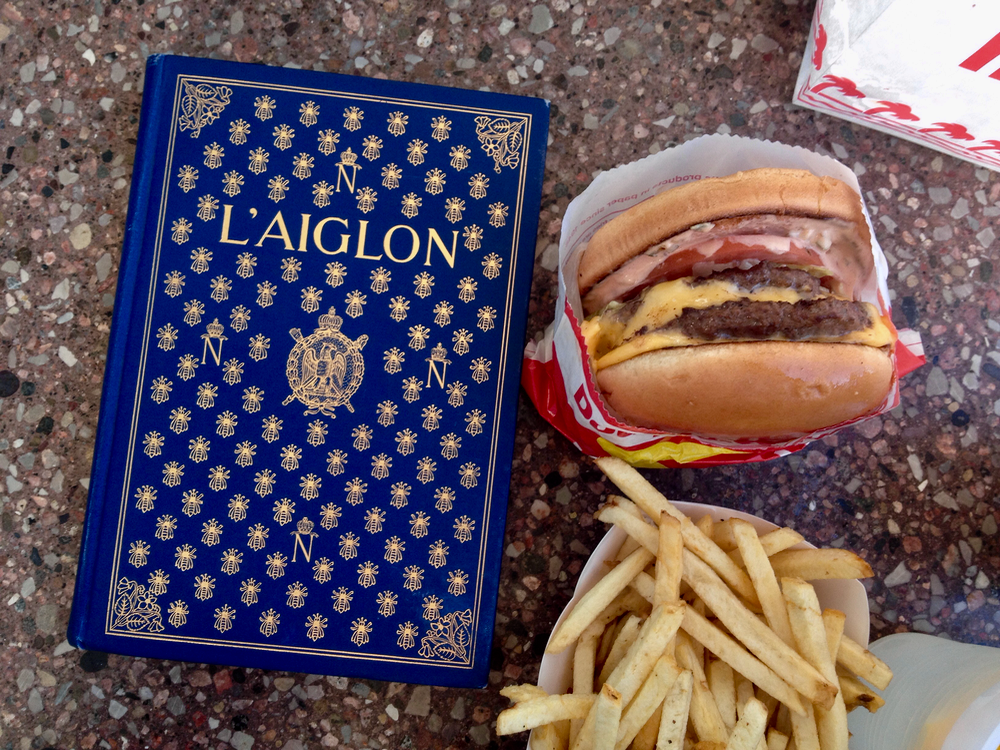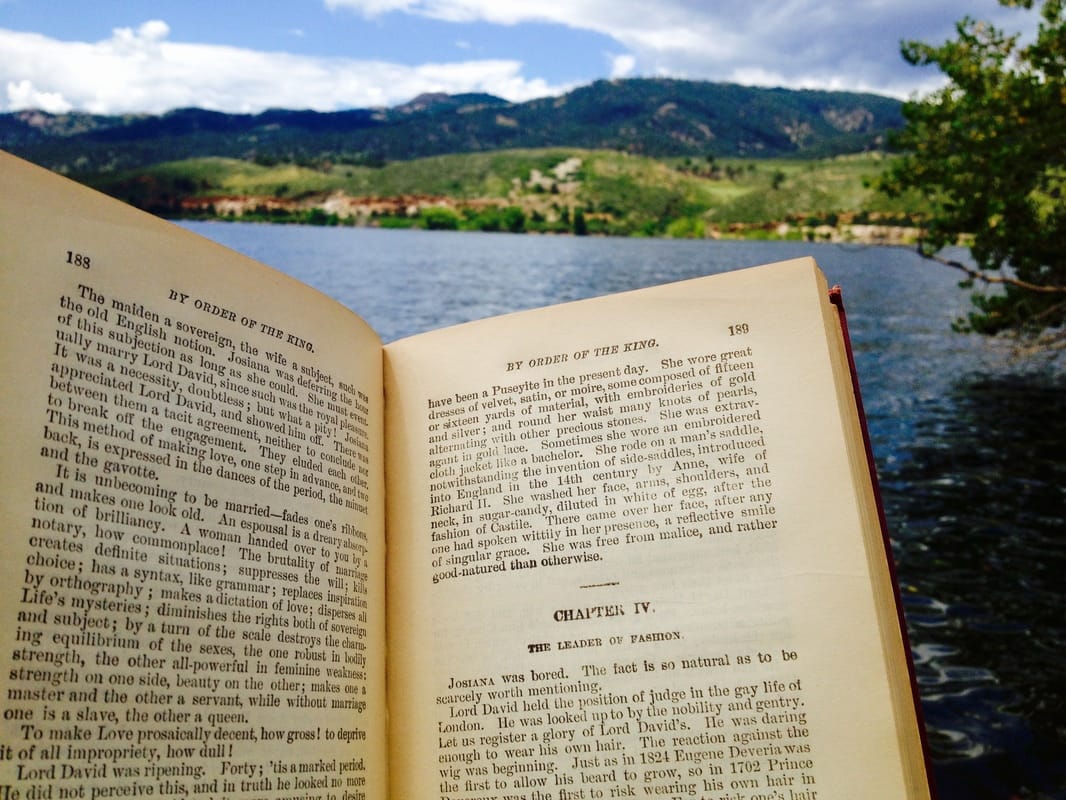| "Thinking to make diviner harmony, we played ... not Shakespeare ... but a parody!" — Percinet, Romantics |
In Romantics, Edmond Rostand reimagines the cliché star-crossed lovers tale via a hilarious three-act comedy. Percinet and Sylvette, teenage neighbors in love, take turns secretly reading Shakespeare's Romeo and Juliet to one another day after day. Their situation is tragically similar, with their two backyards separated by a tall brick wall, built out of mutual hatred shared by their fathers.
But in the opening act's twist, we the audience learn that the fathers are actually best friends, ones who've staged this charade and built the wall in an elaborate plot of reverse psychology. They want their son and daughter to marry, and think that the rebellious youth will fall for one another only if it's forbidden and the chances of being together are sufficiently bleak.
More charades ensue, including a staged kidnapping and seduction, and who knows what when becomes increasingly important as Romantics unfolds in the walled, shadowy backyards. But it's a fun, witty, lighthearted play and deliberately pokes fun at certain romantic-comedy tropes, while still staying true to Rostand's affinity for sincerity and idealism.
And there is so much of Rostand's later, better known plays, in Romantics: a rhapsodizing, dandy of a poet-hero, Straforel, (Cyrano de Bergerac), a head-strong, idealistic, yet perhaps naive youth, Percinet (The Eaglet), references to animal-like qualities, including roosters (Chantecler), and a spiritual quest shared between two lovers who, at its conclusion, understand themselves and love much more (The Princess Far Away).
Today marks my favorite writer's 150th birthday. So, it's fitting that I recommend today Romantics, his first successful play, launching his full-time writing career, which eventually birthed my favorite fictional character, Cyrano de Bergerac, and one of my favorite works, Chantecler. It's also fitting, I think, for Rostand to have begun his career with such a positive, clever, witty play—a play that has, to use my idol's own words about his own artistic idol, Victor Hugo, "a soul filled with stars." [JG]
But in the opening act's twist, we the audience learn that the fathers are actually best friends, ones who've staged this charade and built the wall in an elaborate plot of reverse psychology. They want their son and daughter to marry, and think that the rebellious youth will fall for one another only if it's forbidden and the chances of being together are sufficiently bleak.
More charades ensue, including a staged kidnapping and seduction, and who knows what when becomes increasingly important as Romantics unfolds in the walled, shadowy backyards. But it's a fun, witty, lighthearted play and deliberately pokes fun at certain romantic-comedy tropes, while still staying true to Rostand's affinity for sincerity and idealism.
And there is so much of Rostand's later, better known plays, in Romantics: a rhapsodizing, dandy of a poet-hero, Straforel, (Cyrano de Bergerac), a head-strong, idealistic, yet perhaps naive youth, Percinet (The Eaglet), references to animal-like qualities, including roosters (Chantecler), and a spiritual quest shared between two lovers who, at its conclusion, understand themselves and love much more (The Princess Far Away).
Today marks my favorite writer's 150th birthday. So, it's fitting that I recommend today Romantics, his first successful play, launching his full-time writing career, which eventually birthed my favorite fictional character, Cyrano de Bergerac, and one of my favorite works, Chantecler. It's also fitting, I think, for Rostand to have begun his career with such a positive, clever, witty play—a play that has, to use my idol's own words about his own artistic idol, Victor Hugo, "a soul filled with stars." [JG]
ABOUT THE AUTHOR
| Edmond Rostand (1868 - 1918) was a French poet and dramatist, best known for his play Cyrano de Bergerac (1897). I've now read his five most famous works, and see in them the author's grand view of life and its possibilities, a focus on the importance of sincerity, and how insincerity, even on a small scale leads to ruin. I love this guy, and Rostand loved Victor Hugo, whose novels are some of my favorites. I'm trying to track down Rostand's first play: The Red Glove. If you find any copies online, please let me know. Haven't found it online translated. |
FAVORITE QUOTES
3.
"Too mighty book,
I cannot bear so dolorous a look!
So, till tomorrow, I will close its cover,
and make of Romeo a living lover." — Percinet
2.
"Father is quiet. I could steal away.
Dusk wraps the world. Ghost-dim, the
elder flower adds subtle sweetness
to this magic hour." — Sylvette
1.
"A wholesome bath of fact meet those who roam.
Aye, life will trim our little cockerel's comb." — Straforel
"Too mighty book,
I cannot bear so dolorous a look!
So, till tomorrow, I will close its cover,
and make of Romeo a living lover." — Percinet
2.
"Father is quiet. I could steal away.
Dusk wraps the world. Ghost-dim, the
elder flower adds subtle sweetness
to this magic hour." — Sylvette
1.
"A wholesome bath of fact meet those who roam.
Aye, life will trim our little cockerel's comb." — Straforel
YOU MAY ALSO LIKE

